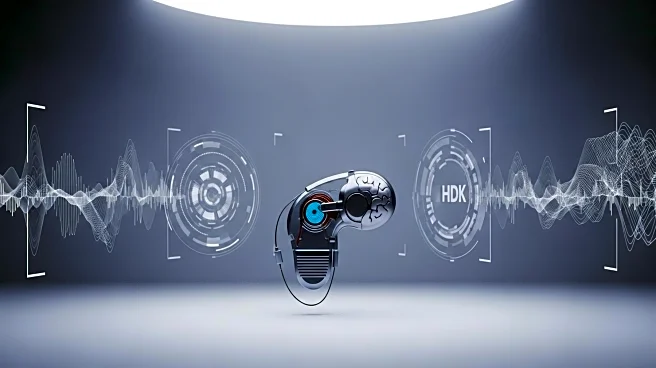What is the story about?
What's Happening?
Neuralink, founded by Elon Musk, is set to begin clinical trials in the U.S. for a new brain implant designed to translate thoughts into text. This technology aims to enhance communication for individuals who have lost their ability to speak due to various conditions. The implant will be placed in specific cortical areas of the brain responsible for speech, capturing neural signals and converting them into text or commands. Neuralink's President, Dongjin Seo, highlighted the potential of this technology to decode thoughts into spoken language, offering a direct link between cognition and expression. The trials, overseen by the FDA, will evaluate the device's viability, focusing on error rates, latency, and usability in real-world conditions.
Why It's Important?
The development of Neuralink's brain implant represents a significant advancement in brain-machine interface technology, with the potential to restore communication abilities for speech-impaired individuals. This innovation could eliminate the need for intermediary steps required by existing assistive devices, offering real-time communication that mirrors natural speech processes. Beyond medical applications, the technology aligns with transhumanist ideals, advocating for human enhancement through technology. The potential use of these implants in healthy individuals raises ethical questions about the boundary between therapy and augmentation, challenging societal norms and personal identity.
What's Next?
The clinical trials set to begin in October will be crucial in determining the safety and efficacy of Neuralink's device. Researchers will assess cognitive load, potential fatigue, and long-term effects such as biocompatibility and risk of infections. These considerations are essential for regulatory approval and potential expansion of the device's use beyond medical applications. As Neuralink advances its research, ethical questions surrounding human augmentation will demand careful deliberation by scientists, ethicists, and policymakers.
Beyond the Headlines
Neuralink's advancements have sparked debates within the transhumanist movement, questioning how far technology can enhance human abilities without transforming human identity. The discourse involves considerations of consent and societal implications, as widespread adoption of such technology could redefine human interaction and communication. As Neuralink continues its ambitious goals, the world watches with anticipation, navigating the ethical and practical challenges of these groundbreaking innovations.

















